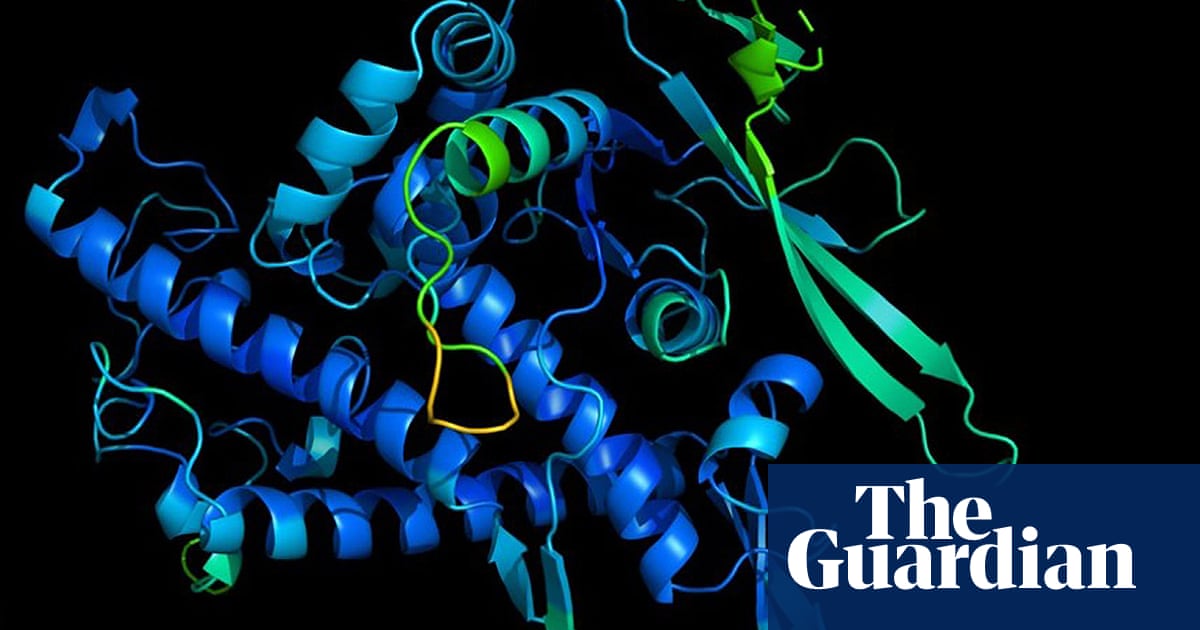Researchers have hailed another “leap forward” for artificial intelligence after Google DeepMind unveiled the latest version of its AlphaFold program, which can predict how proteins behave in the complex symphony of life.
The breakthrough promises to shed fresh light on the biological machinery that underpins living organisms and drive breakthroughs in fields from antibiotics and cancer therapy to new materials and resilient crops.
“It’s a big milestone for us,” said Demis Hassabis, the chief executive of Google DeepMind and the spin-off, Isomorphic Labs, which co-developed AlphaFold3. “Biology is a dynamic system and you have to understand how properties of biology emerge through the interactions between different molecules.”
Earlier versions of AlphaFold focused on predicting the 3D structures of 200m proteins, the building blocks of life, from their chemical constituents. Knowing what shape a protein takes is crucial because it determines how the protein will function – or malfunction – inside a living organism.
AlphaFold3 was trained on a global database of 3D molecular structures and goes a step further by predicting how proteins will interact with the other molecules and ions they encounter. When asked to make a prediction, the program starts with a cloud of atoms and steadily reshapes it into the most accurate predicted structure.
Writing in Nature, the researchers describe how AlphaFold3 can predict how proteins interact with other proteins, ions, strands of genetic code, and smaller molecules, such as those developed for medicines. In tests, the program’s accuracy varied from 62% to 76%.
‘We think are going to unlock a lot of new science,” said John Jumper, who worked on the project at Google DeepMind. “We are already starting to see early testers use this to understand how the cell works and how it might go wrong in disease states.”
Academics can use AlphaFold3 for non-commercial work through Google’s dedicated server.
Dr Julien Bergeron, a structural biologist at King’s College London, studies the propeller-like flagellum that bacteria use to swim and attach to tissues they infect.
He helped test the AlphaFold3 server before its public release with a view to discovering molecules that interfere with the biological propellers. “We can start testing hypotheses before we even go to the lab and this will really be transformative,” he said.
Other researchers will use the program to design molecules and antibodies that can latch on to proteins or sections of genetic code to treat medical conditions and diseases.
Dr Ivo Tews at the University of Southampton called AlphaFold3 a leap forward and said his lab would use it to develop antibodies for cancer therapies. “It will save an enormous amount of time and accelerate research by generating models that we can then explore with new experiments,” he added.
Further work may lead to more productive crops by understanding why some plants photosynthesise more efficiently than others and finding ways to boost the process.
Researchers will still need to perform lab work to confirm the AI’s predictions, as they are not perfect. Another shortcoming is that AlphaFold3 is not good at predicting how proteins can change shape in living systems in response to their environment, an area where more work is needed.
“Proteins function by interacting with other kinds of molecules,” said Prof Dan Rigden, at the University of Liverpool. “AlphaFold3 predicts the molecular details of diverse interactions, as well as those of protein modifications and RNA structures, typically with unprecedented accuracy.
“As such, like its predecessor, it will bring huge benefits across biology, and help address major research challenges from food security to the design of drugs and vaccines.”







